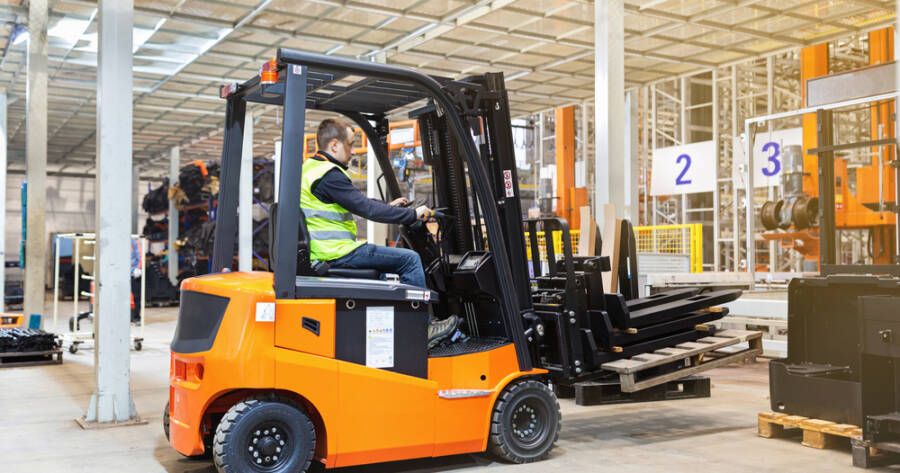Forklift jobs are essential in industries such as warehousing, logistics, construction, and manufacturing, where skilled operators are responsible for moving, loading, and transporting heavy materials efficiently. As businesses continue to expand their supply chains, the demand for trained forklift operators remains high, offering competitive pay, job stability, and career advancement opportunities.
Types of Forklift Jobs
Forklift operators work in a variety of industries, each with unique job duties. The most common forklift positions include:
1. Warehouse Forklift Operator
Warehouse forklift operators work in distribution centers, storage facilities, and retail warehouses. Their tasks include:
- Loading and unloading trucks and storage shelves.
- Transporting goods within the warehouse.
- Tracking inventory using barcode scanners and warehouse management systems.
2. Construction Forklift Operator
These operators work on construction sites and handle:
- Lifting and transporting heavy building materials like concrete, steel, and lumber.
- Operating forklifts in rough outdoor environments.
- Assisting crane and hoist operations to move materials safely.
3. Manufacturing Forklift Operator
Forklift operators in manufacturing plants:
- Move raw materials and finished products between production areas.
- Ensure production lines remain stocked to prevent delays.
- Assist in packaging and shipping processes.
4. Shipping and Receiving Forklift Operator
These professionals are responsible for:
- Loading and unloading freight trucks and shipping containers.
- Inspecting shipments to ensure accuracy.
- Organizing products for distribution and delivery.
5. Specialized Forklift Jobs
Some industries require specialized forklift operators, including:
- Cold Storage Operators – Work in freezers and refrigerated warehouses.
- Port and Dock Forklift Operators – Handle heavy cargo and shipping containers.
- Heavy-Duty Forklift Operators – Transport oversized or industrial equipment.
Key Responsibilities of a Forklift Operator
Forklift operators must perform a range of duties to ensure safety and efficiency in material handling. Their responsibilities include:
- Operating forklifts safely to move heavy goods.
- Loading and unloading trucks, shelves, and storage areas.
- Performing daily forklift inspections and routine maintenance.
- Following workplace safety regulations and OSHA guidelines.
- Maintaining organization in warehouses and storage facilities.
How to Become a Forklift Operator
1. Meet Basic Job Requirements
- Most forklift positions require a high school diploma or GED.
- Physical fitness is important, as the job involves lifting and operating heavy machinery.
2. Obtain Forklift Certification
- The Occupational Safety and Health Administration (OSHA) requires forklift operators to complete safety training and certification.
- Certification programs are available at vocational schools, online training centers, and through employer-sponsored programs.
3. Gain Industry Experience
- Entry-level positions often provide on-the-job training.
- Experience in warehousing, logistics, or construction can improve job prospects.
4. Apply for Forklift Jobs
- Look for job opportunities on Indeed, LinkedIn, company websites, and staffing agencies.
- Some companies offer temp-to-hire positions, allowing workers to gain experience before securing a full-time role.
Benefits of Forklift Jobs
Forklift jobs offer several career advantages, including:
- Job Security – High demand in warehouses, shipping, and construction industries.
- Competitive Pay – Entry-level wages start above minimum wage, with experienced operators earning more.
- Career Advancement – Opportunities to move into supervisory roles, warehouse management, or heavy equipment operation.
- Flexible Work Options – Jobs available in full-time, part-time, night shifts, and temporary roles.
A Stable and Rewarding Career in Forklift Operations
Forklift jobs provide a stable and rewarding career path for individuals looking for hands-on work in industrial, warehouse, and logistics environments. With proper certification and training, forklift operators can secure high-paying jobs with opportunities for advancement. By gaining experience, following safety protocols, and developing specialized skills, forklift operators can build a successful and long-term career in material handling and industrial operations.

